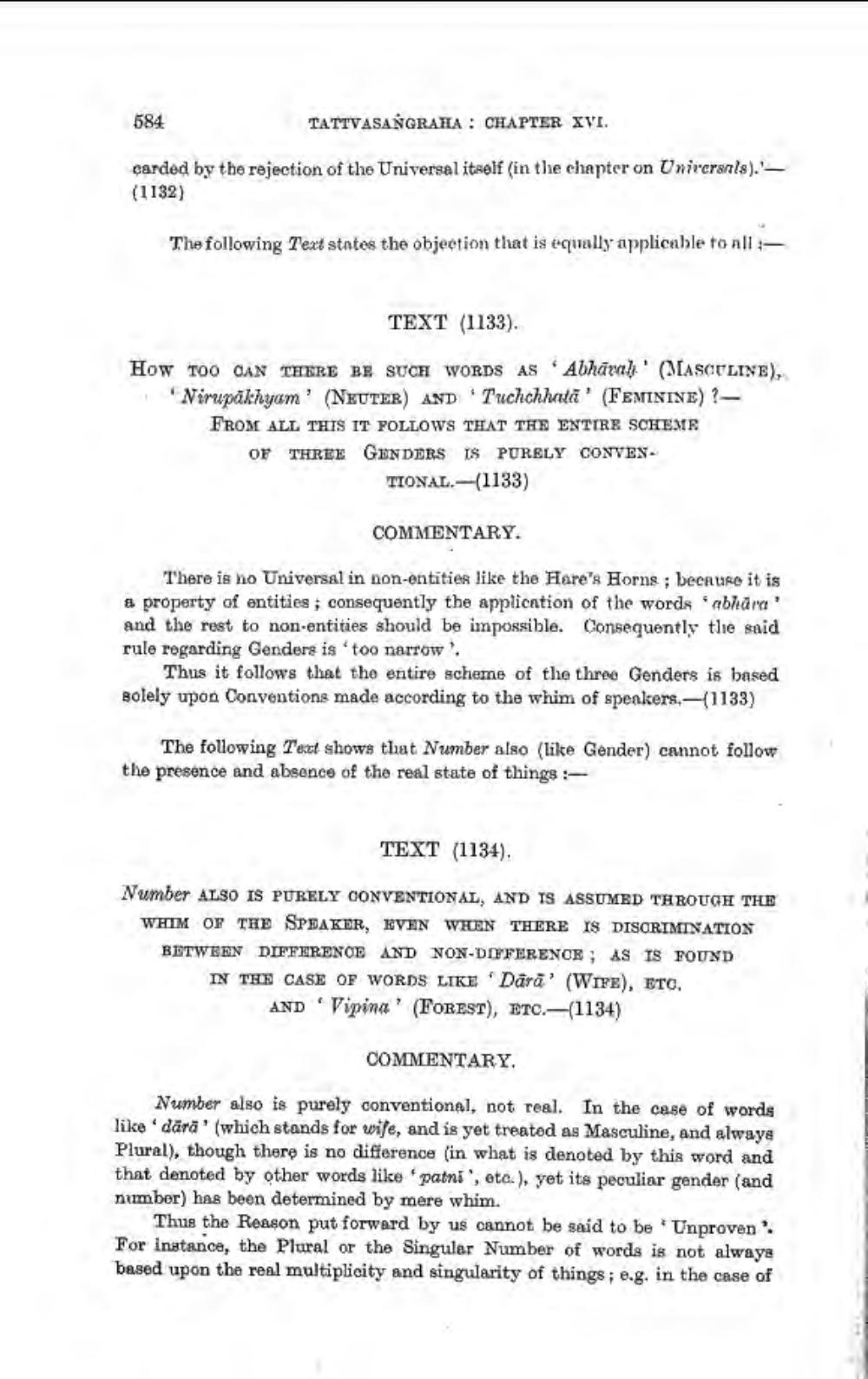________________
584
TATTVASANGRAHA : CHAPTER XVI.
carded by the rejection of the Universal itself in the charter on Universals).'(1132)
The following Text states the objection that is equally applicable to all :
TEXT (1133).
HOW TOO CAN THERE BE SUCH WORDS AS Abhāval' (MASCULINE), "Nirupakhyam' (NEUTER) AND Tuchchhata' (FEMININE)?FROM ALL THIS IT FOLLOWS THAT THE ENTIRE SCHEME OF THREE GINDDRS IS PURELY CONVEN
TIONAL.-(1133)
COMMENTARY.
There is no Universal in non-entities like the Hare's Horns ; because it is & property of entities; consequently the appliction of the words abharat and the rest to non-entities should be impossible. Consequently the said rule regarding Genders is 'too narrow,
Thus it follows that the entire scheme of the three Genders is based Bolely upon Conventions made according to the whim of speakers.-(1133)
The following Test shows that Number also like Gender) cannot follow the presence and absence of the real state of things :
TEXT (1134).
Number ALSO IS PURELY CONVENTIONAL, AND IS ASSUMED THROUGH THE WHIM OF THE SPEAKER, EVEN WHEN THERE IS DISCRIMINATION BETWEEN DIFFERENCE AND NON-DIFFERENCE; AS IS FOUND IN THE CASE OF WORDS LIKE 'Dārā' (WIFE), ETC.
AND 'Vipina' (FOREST), ETC.-(1134)
COMMENTARY.
Number also is purely conventional, not real. In the case of words like 'dārā' (which stands for wife, and is yet treated as Masculine, and alwaya Plural), though there is no difference (in what is denoted by this word and that denoted by other words like patni', etc.), yet its peculiar gender (and number) has been determined by mere whim.
Thus the Reason put forward by us cannot be said to be Unproven For instance, the Plural or the Singular Number of words is not always based upon the real multiplicity and singularity of things; e.g, in the case of




